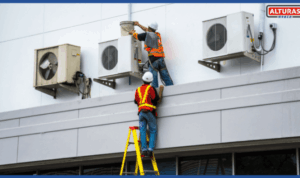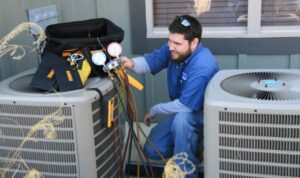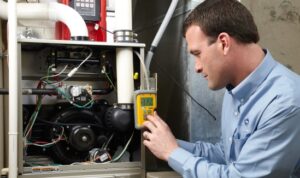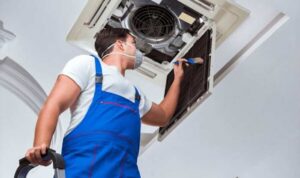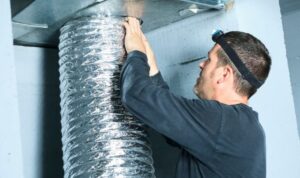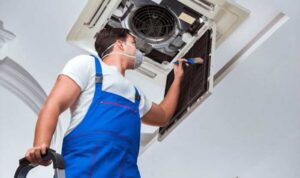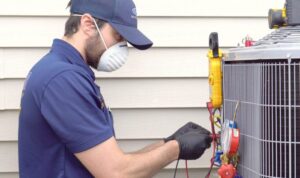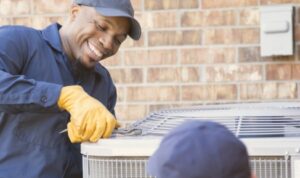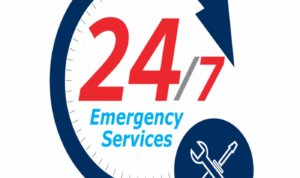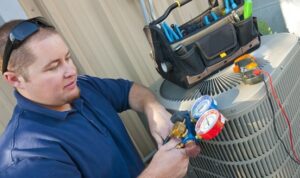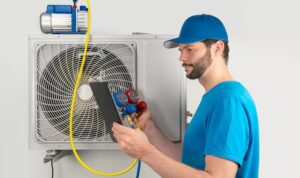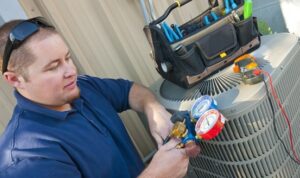Exploring the world of AC air conditioner repair, this introduction delves into the significance of regular maintenance and repair for your AC unit. From enhancing performance to extending its lifespan, discover why this often overlooked task is vital for every homeowner.
As we navigate through the common problems, differences between DIY and professional repair, and the repair process itself, readers will gain valuable insights into the world of AC maintenance.
Importance of AC Air Conditioner Repair
Regular maintenance and repair of your AC air conditioner is essential to ensure optimal performance and longevity. Neglecting these necessary tasks can lead to a range of consequences that affect both the efficiency of your unit and your overall comfort at home.
Hiring professionals for AC repairs is highly recommended over attempting DIY solutions due to the expertise and precision they bring to the table.
Consequences of Neglecting AC Repairs
- Reduced Cooling Efficiency: Failure to address minor issues can result in reduced cooling efficiency, leading to higher energy bills and discomfort in your home.
- Shortened Lifespan: Neglecting regular maintenance can shorten the lifespan of your AC unit, requiring premature replacement and added costs.
- Potential Breakdowns: Ignoring repair needs can increase the risk of sudden breakdowns, especially during peak usage times, leaving you without cooling when you need it most.
Benefits of Hiring Professionals for AC Repairs
- Expertise and Experience: Professional technicians have the knowledge and experience to accurately diagnose and repair issues, ensuring long-term performance and efficiency.
- Quality Workmanship: Hiring professionals guarantees quality workmanship, preventing further damage and ensuring that repairs are done correctly the first time.
- Time and Cost Savings: While DIY solutions may seem cost-effective initially, hiring professionals can save you time and money in the long run by preventing costly mistakes and ensuring proper maintenance.
Common AC Air Conditioner Problems
When it comes to AC air conditioner problems, there are several common issues that may require repair. It is important to recognize the signs indicating that your AC unit needs attention to prevent further damage and ensure optimal performance.
Refrigerant Leaks
Refrigerant leaks are a common issue that can cause your AC unit to malfunction. Signs of a refrigerant leak include reduced cooling capacity and ice buildup on the refrigerant lines. Repairing a refrigerant leak involves locating the source of the leak, fixing it, and recharging the system with the correct amount of refrigerant.
Dirty or Clogged Filters
Dirty or clogged filters can restrict airflow and reduce the efficiency of your AC unit. Signs of dirty filters include reduced airflow, increased energy consumption, and poor indoor air quality. Repairing this issue involves cleaning or replacing the filters to improve airflow and overall performance.
Faulty Thermostat
A faulty thermostat can lead to temperature inconsistencies and improper cooling. Signs of a faulty thermostat include inaccurate temperature readings or the inability to adjust the temperature settings. Repairing a faulty thermostat may involve recalibration or replacing the unit to ensure accurate temperature control.
Electrical Issues
Electrical issues such as faulty wiring or malfunctioning components can cause your AC unit to stop working. Signs of electrical issues include tripped circuit breakers, unusual noises, or burning smells. Repairing electrical problems may require professional inspection and repair to ensure safe operation of your AC unit.
DIY vs. Professional AC Repair
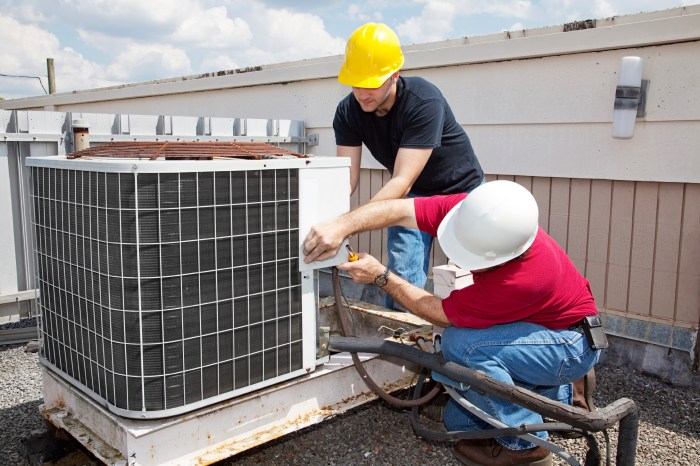
When it comes to AC repair, homeowners often face the decision of whether to attempt a do-it-yourself fix or seek the expertise of a professional technician. Both options have their own set of advantages and disadvantages, and understanding the differences between the two can help make an informed decision.
Benefits of DIY AC Repair
- Cost-effective: DIY repairs can save money on service fees and labor costs.
- Convenience: Some minor AC issues can be easily fixed without having to wait for a technician.
- Learning opportunity: DIY repairs can provide valuable knowledge and skills for future maintenance.
Risks of DIY AC Repair
- Safety hazards: Working with electrical components can be dangerous without proper knowledge and precautions.
- Voiding warranties: Attempting DIY repairs may void the manufacturer's warranty on the AC unit.
- Potential damage: Incorrect repairs can lead to further damage to the AC unit, resulting in costly repairs.
When to Seek Professional Help
- Complex issues: For major problems or complicated repairs, it is best to hire a professional technician with the necessary skills and tools.
- Lack of experience: If you are unsure about how to diagnose or fix the problem, seeking professional help can prevent costly mistakes.
- Safety concerns: If the repair involves working with refrigerant or electrical components, it is safer to leave it to trained professionals.
AC Air Conditioner Repair Process

When your AC unit malfunctions, it can be frustrating, especially during hot summer months. Understanding the repair process can help you troubleshoot and fix minor issues before they escalate into major problems. Let's delve into the typical steps involved in repairing a malfunctioning AC unit.
Tools and Equipment Required for Common AC Repairs
- Thermometer: Used to check the temperature of the air coming out of the vents.
- Multi-meter: Essential for checking electrical connections and components.
- Refrigerant gauge: Helps in measuring the refrigerant levels in the AC unit.
- Fin comb: Used to straighten any bent fins on the AC unit.
Step-by-Step Guide for Troubleshooting and Fixing Minor AC Issues
- Check the thermostat settings to ensure they are correctly set.
- Inspect the air filters and replace them if dirty or clogged.
- Examine the condenser unit outside for any debris or blockages.
- Inspect the evaporator coils for dirt or frost buildup.
- Check the refrigerant levels and add more if necessary.
- Test the electrical connections for any loose wires or damaged components.
Ultimate Conclusion
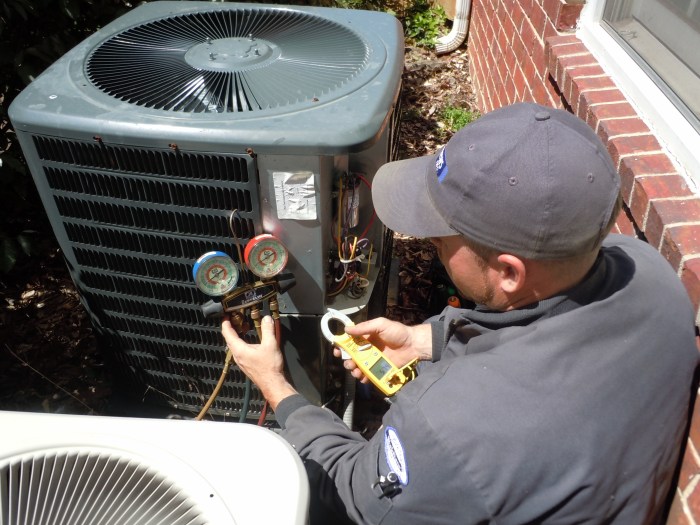
In conclusion, maintaining your AC through regular repair not only ensures a cool and comfortable environment but also saves you from costly repairs down the line. Remember, a well-maintained AC is a happy AC.
Detailed FAQs
What are the consequences of neglecting AC repairs?
Neglecting AC repairs can lead to decreased efficiency, higher energy bills, and even complete system breakdowns.
When should I seek professional help for AC repair?
Professional help is recommended for complex issues, strange noises, or when the AC fails to cool properly despite basic troubleshooting.

